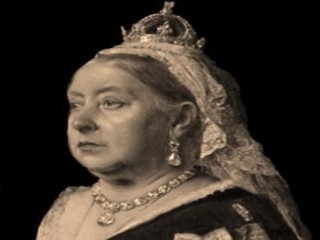
Queen Victoria biography
Date of birth : 1819-05-24
Date of death : 1901-01-22
Birthplace : London, England
Nationality : British
Category : Historian personalities
Last modified : 2010-04-01
Credited as : British queen, Royalty,
3 votes so far
After her death in 1901 she was succeeded by her son Prince Albert, who became King Edward VII.
Queen Victoria and nineteenth Century Britain
The 19th Century was a time of unprecedented expansion for Britain in term of both of industry and Empire. Although her popularity ebbed and flowed during her reign, towards the end of her crown, she had become a symbol of British imperialism and pride.
The Victorian period also witnessed great advances in science and technology. It became known as the steam age, enabling people to easily travel throughout the UK and the World.
Queen Victoria was emblematic of this period. She was an enthusiastic supporter of the British Empire. She celebrated at Lord Kitchener's victory in the Sudan, she supported British involvement in the Boer War. She was also happy to preside over the expansion of the British Empire, which was to stretch across the globe. In 1877 Queen Victoria was made Empress of India, in a move instigated by the imperialist Disraeli. Famously, at the end of the Victorian period, people could say 'the sun never set on the British Empire'
Queen Victoria was conservative in her politics and social views. This led to an unfortunate episode. When she saw a servant who appeared to be pregnant, Victoria claimed she was having an affair. The Queen actually made her take a test to prove she was a virgin. The test was positive and the growth in her stomach was actually a form of cancer; a few months later the servant died and Queen Victoria suffered a decline in her popularity as a result of this episode.
In the early part of her reign she become a close friend and confident of the Prime Minister, Lord Melbourne. She spent many hours talking to him and relied on his political advice. Lord Melbourne was a whig, with conservative attitudes. He tried to shield Queen Victoria from the extreme poverty that was endemic in parts of the UK.
Queen Victoria was also highly devoted to her husband, Prince Albert; together they had 9 children. When Prince Albert died in 1861, at the age of 41, Queen Victoria went into deep mourning and struggled to overcome this loss. She became reclusive and was reluctant to appear in public. Parliament and Benjamin Disraeli had to use all their persuasive power to get her to open parliament in 1866 and 1867. This hiding from the public led to a decline in popularity. However, by the end of her reign, her popularity was restored. This was partly due to the rise of Great Britain as the leading super power of the era.
For various reasons, several attempts were made on the life of Queen Victoria. These were mostly between 1840 and 1882. She was always unharmed, but, her courageous attitude helped to endear her to the public.
















